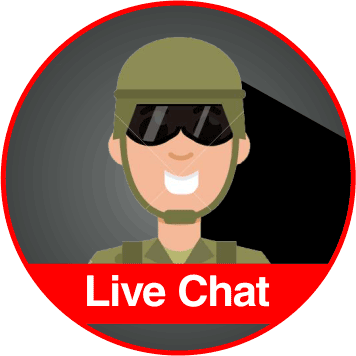What is Service Selection Board | SSB Interview

Service Selection Board : The concept of “Right people for the Right job” emerged as a response to the setbacks and failures experienced during the First World War. It was considered a privilege of the ‘Noblesse Oblige’ to lead men in war, while the duty of the ‘Kshatriyas’ was to engage in combat. Prior to this shift, psychology played no role in the selection process.
In 1917, the U.S. Army initiated the use of psychological tests to select recruits for various branches of its military. In 1927, the Germans established a dedicated department of Corps of Military Psychologists to aid in the selection of military personnel. Subsequently, in 1942, the United Kingdom established its first War Office Selection Board for the military personnel selection process.
During World War II, the Far East became a major theater of operations, leading to a significant expansion of the Indian Armed Forces. In February 1943, the War Office Selection Board (WOSB) was established in Dehradun on an experimental basis to select officers using psychological techniques.
In 1948, the Government of India appointed the ‘Ghosh Committee’ to review the system of officer selection in the Armed Forces. Based on the committee’s recommendations, the Psychological Research Wing (PRW) was established on August 29, 1949, under the Defense Science Organization.
The primary role assigned to the Psychological Research Wing (PRW) was to conduct research on personnel selection methods, develop tools for selecting personnel at Services Selection Boards (SSBs), maintain selection results and relevant statistics, and train assessors for effective functioning at the SSBs.
Applications for the National Defense Academy (NDA), which includes 10+2 entries, Navy entries, Indian Military Academy (IMA), Officers’ Training Academy (OTA), and Air Force Academy (AFA), are issued by the Union Public Service Commission (UPSC) twice a year. The NDA exams are conducted in April and September of each year. Successful applicants’ applications are then forwarded to the respective Selection Boards for further evaluation.
For all other entry types, such as 10+2 (Tech) entries for the Army and Navy, Ground Duties (Air Force), Graduate Technical Entry for the Army, Navy, and Air Force, applications are directly requested by the respective Service Headquarters. Short-listed applications are then sent to the Selection Boards for personality assessments.
Read Here – How To Become A MARCOS – Marine Commando Of Indian Navy
Under the current system, there are combined Services Selection Boards responsible for screening Army and Navy entries. These boards are organized under various Selection Centers and are overseen by the Directorate of Recruiting within the Adjutant General’s Branch. The Air Force Boards, functioning as separate entities, are administratively managed by the Directorate of Personnel at Air Headquarters. The Directorate of Personnel Research (DIPR) offers technical guidance to all the Boards and provides training to the personnel involved in Selection duties.
SSB Interview Process
The SSB (Services Selection Board) interview process is a rigorous and comprehensive evaluation conducted by the Indian Armed Forces to select potential candidates for officer positions in the Army, Navy, and Air Force. The process is primarily used to assess a candidate’s suitability for a career in the military and is known for its stringent evaluation of not just academic qualifications, but also various other aspects of a candidate’s personality, character, and potential as a leader.
Here is a brief overview of the SSB interview process:
- Screening Test: This is the initial phase, typically held on the first day. It includes intelligence and reasoning tests, and if you pass, you move on to the next stage.
- Psychological Testing: This phase assesses your personality traits and psychological attributes. It includes tests like the Thematic Apperception Test (TAT), Word Association Test (WAT), and Situation Reaction Test (SRT). These tests aim to understand your thought process, problem-solving abilities, and response to various situations.
- Group Testing: In this stage, candidates are assessed through various group activities. Tasks like Group Discussions, Group Planning Exercises, and Outdoor Group Tasks are conducted to evaluate your leadership skills, teamwork, and ability to handle pressure.
- Personal Interview: A one-on-one interview with an interviewing officer is a critical part of the selection process. During the interview, the candidate’s academic, personal, and professional background is discussed, and their qualities and aspirations are evaluated.
- Conference: In this final stage, all the assessors sit together to decide on the suitability of the candidate. It’s a collective decision-making process to determine if the candidate should be recommended or not.
Throughout the SSB interview process, assessors look for qualities like leadership, effective communication, teamwork, adaptability, determination, courage, and a sense of responsibility. Candidates are also evaluated on their physical fitness and medical standards.
Frequently Asked Questions :-
1. What is the purpose of the SSB interview?
The primary purpose of the SSB (Services Selection Board) interview is to assess and select candidates for officer positions in the Indian Armed Forces, including the Army, Navy, and Air Force. The SSB interview process is designed to evaluate not only a candidate’s academic qualifications but also their personality, character, leadership potential, and suitability for a career in the military. It aims to identify individuals who possess the qualities required to lead, make quick decisions under pressure, and serve with honor and dedication.
2. How can I prepare for the SSB interview?
Preparation for the SSB interview involves a combination of mental, physical, and psychological readiness. Here are some tips to help you prepare:
- Self-awareness: Reflect on your strengths and weaknesses, life experiences, and aspirations. Understanding yourself is crucial for the interview.
- Communication skills: Practice effective communication, both in English and your regional language. Be clear and concise in your responses.
- Physical fitness: Maintain a good level of physical fitness as there will be physical tasks during the assessment.
- Read about the Armed Forces: Be well-informed about the organization, its history, and current events related to the military.
- Psychological tests: Familiarize yourself with common SSB psychological tests like TAT, WAT, and SRT. Practice by attempting sample questions.
- Group activities: Practice teamwork and leadership skills by participating in group activities and discussions.
- Interview practice: Get feedback from mentors or seniors who have gone through the SSB process. Mock interviews can be beneficial.
You can prepare for SSB interviews and defense entrance exams such as NDA, AFCAT, INET, and CDS by enrolling in online courses. These courses offer full-length, high-quality lectures and provide the opportunity to take standardized mock tests to enhance your study and strategic preparation for the exams. You can also take multiple quizzes after each lesson to ensure a comprehensive understanding of the subject, and even create personalized lesson plans.
For further information on course content and other important details, you can visit the MKC Learning App. Access to these resources is also available through the MKC Learning App, which can be found on the Google Play Store.
Jai Hind!









